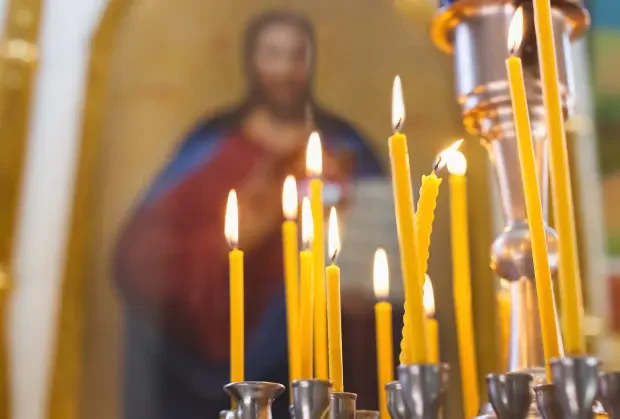The Orthodox baptism rite includes a three-stage exorcism that is extremely detailed about the spiritual warfare that surrounds new Christians.
Finally, there is this appeal to God: "Redeeming this Your creature from the yoke of the Enemy, receive him (her) into Your heavenly Kingdom. … Yoke unto his (her) life a shining Angel to deliver him (her) from every plot directed against him (her) by the Adversary, from encounter with evil, from the noon-day demon, and from evil dreams. Drive out from him (her) every evil and unclean spirit, hiding and lurking in his (her) heart."
The "Enemy" is Satan. Catechumens are asked, three times: "Do you renounce Satan, and all his works, and all his worship, and all his angels, and all his pomp?" They respond: "I do renounce him."
After several years of conversations while travelling nationwide, Father Andrew Stephen Damick is convinced these ancient prayers are painfully relevant to many converts surging into the small, but now growing, "Eastern Church" in America. It is no longer unusual to meet converts who have worshipped other gods and spirits.
"There's a sense of disenchantment, both in the sense of people feeling disillusioned and sort of bummed by the culture in general, but also disenchantment in the sense of a disconnection from the unseen spiritual world," said Damick, of the online Ancient Faith Ministries.
The converts want stability and guidance. Damick, via Zoom, stressed that many have "experienced the darkness of the unseen spiritual world and want to know what to do about that."
During a recent online forum -- "American Orthodoxy in 2040" -- Seraphim Rohlin, a data scientist who is also a deacon in the Orthodox Church in America, described a survey of converts in the Dallas area. As expected, 50% were former evangelicals, but 25% were former Catholics and 25% were truly "unchurched," including some neopagans. After a surge of young male converts, Orthodox leaders are now tracking a larger wave of young families.
As with many faith groups, some Orthodox parishes declined during the coronavirus pandemic. Other parishes stalled. Still, there have been pockets of Orthodox growth across the nation, even in areas with plateaued or declining population numbers. The biggest surge is in the Sun Belt and West, with numerous parishes doubling and tripling in size.










